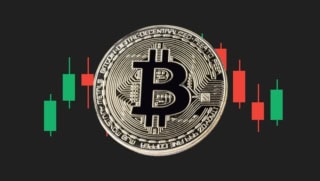In a significant move aimed at refining the oversight of digital assets, Japan’s Financial Services Agency (FSA) has unveiled a proposal to classify cryptocurrencies into two distinct categories: Type 1 and Type 2. This comes as part of the country’s broader efforts to regulate the fast-evolving crypto industry, striking a balance between fostering innovation and protecting investors.
New Classification for Crypto Assets
Under the new framework, cryptocurrencies will be divided into two categories based on their purpose and use:
- Type 1: Business Crypto Assets Type 1 assets include crypto assets created for business purposes or fundraising activities, such as utility tokens. Utility tokens connect to developing projects, which use them to gather funding for development initiatives. According to the FSA, they require addressing investor information gaps so users can understand fund allocation purposes along with complete project details.
- Type 2: Non-Business Crypto Assets Type 2 assets encompass more decentralized cryptocurrencies like Bitcoin and Ethereum. These assets maintain their presence in the market without participating in fundraising activities for business development. The FSA finds it difficult to connect Type 2 crypto assets with one particular issuer, so it becomes problematic to enforce certain information and disclosure requirements.
The updated crypto asset framework shapes better regulatory standards while boosting transparency, particularly for funding platforms and business cryptocurrency operations. Different cryptocurrency assets receive distinct classification based on their decentralization models as well as their current business operations.
Japan’s Approach to Crypto Regulation
The FSA’s proposal comes as part of a broader regulatory overhaul that seeks to integrate cryptocurrencies into Japan’s financial system more effectively. As part of this move, the authorities are discussing ways to remove the prohibition on crypto exchange-traded funds (ETFs) to advance crypto market participation.
Japan traditionally adopted slow and careful crypto regulatory measures, while its current policies demonstrate rising involvement in this sector. Japan’s regulatory framework seeks to establish digital asset definitions for clarifying important matters about insider trading along with market transparency and project disclosure details.
The FSA within Japan is actively working to establish guidelines regarding industry-specific standards for staking and travel rule execution by service providers to deter money laundering and enhance security.
Public feedback regarding the proposed classification system continues to be accepted by the FSA through May 10, 2025. The agency actively seeks comments about the proposed framework to develop enhanced regulations through public feedback.
This new regulatory framework aims to unite Japan’s crypto sector with worldwide standards and keep the market protected from fraudulent activities. These regulatory measures will function as a template for nations seeking regulation of their quickly growing digital asset markets.
The FSA in Japan remains actively progressive as they aim to present an official cryptocurrency bill to the parliamentary system by 2026. Japan plans to submit legislation during 2026 that will treat cryptocurrencies identically to traditional securities by imposing strict laws on insider trading and non-public information handling.
Until now, crypto assets have been largely regulated in a separate framework, with minimal oversight on trading practices that would be deemed illegal in conventional financial markets.

 3 min read
3 min read


















